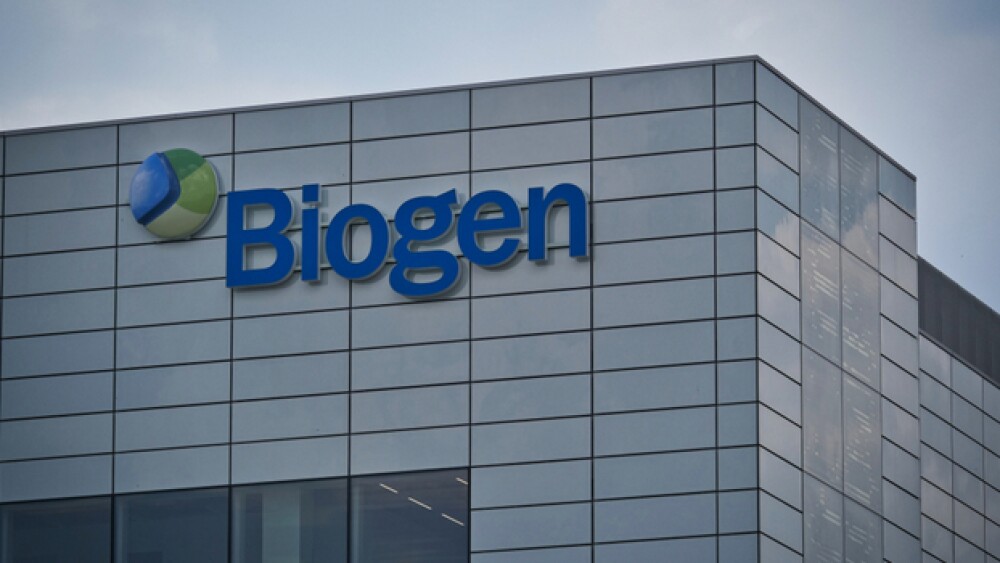Biogen has terminated its asset purchase agreement with Karyopharm Therapeutics, putting a halt to the development of KPT-350 (BIIB100), which was being evaluated as a treatment for ALS.
John Tlumacki/The Boston Globe via Getty Images
Biogen has terminated its asset purchase agreement with Karyopharm Therapeutics, putting a halt to the development of KPT-350 (BIIB100), which was being tested in Phase 1 as a treatment for amyotrophic lateral sclerosis (ALS).
In a U.S. Securities and Exchange Commission filing, cancer therapies developer Karyopharm wrote that the deal it signed on January 24, 2018, is no longer in force, leaving the company with no potential entitlement to any royalties or milestone payments.
Biogen had paid Karyopharm $10 million upfront four years ago for the rights to KPT-350, an oral selective inhibitor of nuclear export, and related assets to bolster the company’s ALS therapy development activities. Karyopharm had been eligible to receive up to $270 million more if and when more milestones were achieved.
The document does not detail why the deal ended, but notably, Biogen has not been getting any positive news on the ALS front of late. In March, a Phase 1 study of BIIB078, which the company had been conducting with partner Ionis Pharmaceuticals for people with a specific type of ALS associated with the C9orf72 gene, failed to meet clinical endpoints. The program was subsequently stopped.
The terminated deal with Karyopharm might not be surprising to industry observers who were somewhat wary in 2018 over the conservative amount invested into the deal. Analysts had expected Biogen to make a bigger splash, particularly as other companies at the time had been pouring billions into mergers and acquisitions.
Biogen has yet to comment on the canceled deal with Karyopharm.
The $3 billion ALS market remains with a huge unmet need where no cure or treatment exists. The U.S. Food and Drug Administration has approved certain drugs such as edaravone and riluzole for ALS, also called Lou Gherig’s disease, but these have only demonstrated the ability to moderately slow down disease progression. All modes of treatment are related to just reducing discomfort and pain, improving nutrition and supporting mobility.
Biogen is currently in Phase III studies with Ionis for tofersen, an investigational antisense drug for people living with superoxide dismutase 1 (SOD1) ALS. While the drug failed to meet the primary endpoint, new 12-month data from the Phase III VALOR study shared earlier this month demonstrated the drug’s potential to slow decline in muscle strength, clinical and respiratory function. Early survival data also point to the possibility of lowering the risk for permanent ventilation or death if the drug is given early on.





